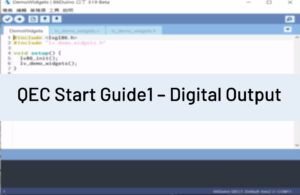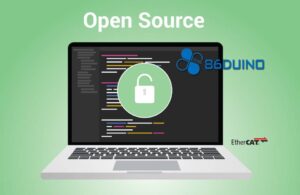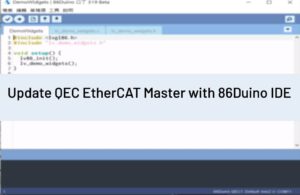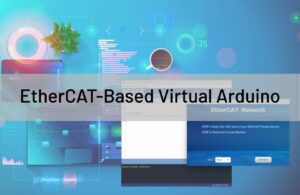The 86Duino environment can be extended through the use of libraries, just like most programming platforms. Libraries provide extra functionality for use in sketches, e.g., working with hardware or manipulating data. A number of libraries come installed with the IDE, and 86Duino supports most of the Arduino Standard Libraries as well as provides dedicated libraries to utilize the 86Duino-specific hardware functions.
You can also download or create your own libraries. See these instructions for details on installing libraries. There’s also a tutorial on writing your own libraries; and further, you may refer to Arduino’s API Style Guide for some guidelines on making a good Arduino-style API for your library.
To use a library in a sketch, select it from スケッチ > ライブラリをインクルード.
Libraries Reference:
Supported Arduino Standard Libraries
- EEPROM – reading and writing to “permanent” storage.
- Ethernet – for connecting to the internet using the onboard LAN connector.
- Firmata – for communicating with applications on the computer using a standard serial protocol.
- LiquidCrystal – for controlling liquid crystal displays (LCDs).
- SD – for reading and writing SD cards.
- Servo – for controlling servo motors.
- SPI – for communicating with devices using the Serial Peripheral Interface (SPI) Bus.
- SoftwareSerial – for software-implemented serial communication on digital pins.
- Stepper – for controlling stepper motors.
- Wire – Two Wire Interface (TWI/I2C) for sending and receiving data over a net of devices or sensors.
86Duino Only Libraries
- Motion86 – making 86Duino as a multi-axis motion controller.
- Modbus – for communicating with various Modbus ASCII/RTU/TCP devices.
- CANBus – for communicating with devices that use the Controller Area Network (CAN Bus).
- FirmataPlus86 – connecting 86Duino with Scratch.
- Servo86 – an extended servo-motor library for controlling robot motion.
- AIServo86 – a serial-servo-motor library for controlling robot motion.
EtherCAT Libraries
- EtherCAT – making QEC as an EtherCAT system.
Supported (Non-standard) Arduino Libraries
- Audio – access the onboard HD Audio interface by the API of Arduino Due’s Audio library.
- TimerOne – access 86Duino’s 32-bit hardware timer by the API of the Arduino TimerOne library.
- MsTimer2 – access 86Duino’s second hardware timer by the API of the Arduino MsTimer2 library.
- Time86 – read the on-board RTC timer by the API of the Arduino Time library.
- SCoop – provides the API of the Simple Cooperative Scheduler for Arduino to access a light and simple environment for creating powerful multi-threaded programs or easy multi-tasking solutions.
See also the list of other Arduino third-party libraries that are compatible with 86Duino.
Using the C/C++ Standard Library
Since the 86Duino IDE employs DJGPP as the compiler, it is possible to use the complete C/C++ Standard Library in your sketches. See the DJGPP C Library Reference for a detailed function list that you can use.
If you find any suggestion and correction for the documentation, please email to info@86duino.com.
86Duino のリファレンスのテキストは Arduino レファレンス を編集したもので、 Creative Commons Attribution-ShareAlike 3.0 License下でライセンスされています。リファレンス内のコードサンプルはパブリックドメインとして公開されています。



